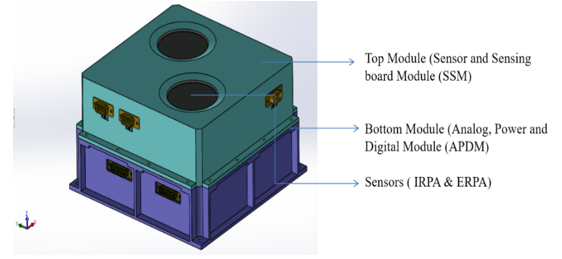Advance Retarding Potential Analyser for Ionospheric Studies (ARIS)
ARIS (Advanced Retarding Potential Analyser for Ionospheric Studies) is an ionospheric plasma and electrostatic instrument developed by IIST for the structural and compositional studies of the ionosphere. Solar activity which is the main driver of the ionosphere can be studied in real-time by performing ion and electron density measurements in the ionosphere. Such measurements provide us with the warning of hazardous radiation effects on space assets, possible radiation exposure to aircraft crew and possible power grid disruptions. Therefore, real-time and constant monitoring of ionospheric behaviour is of great importance to humans in day-to-day life
ARIS 201F was launched on PSLV C55 on the PS4 stage. ARIS 201F is an upgraded version of ARIS 101F which was flown to Earth’s ionosphere in 2019 as part of the PSLV C45 mission. ARIS 201F has fully indigenous and in-house-built sensors with high sensitivity and high energy resolution and optimised operating parameters to receive more data in the energy range relevant to the Earth ionosphere (based on data received from ARIS 101F). The payload uses a Dual-Retarding Potential Analyser (RPA) configuration, Ion-mode RPA (I-RPA) and Electron-mode RPA (E-RPA) along with four electronics cards (Pre-amplifier board, front-end electronics board, data acquisition board and power generation board).




